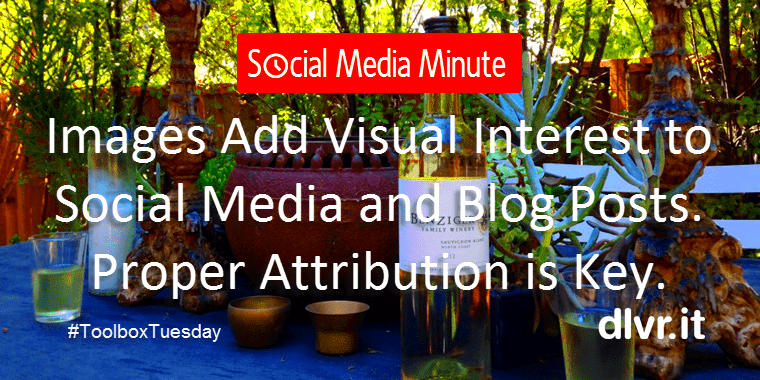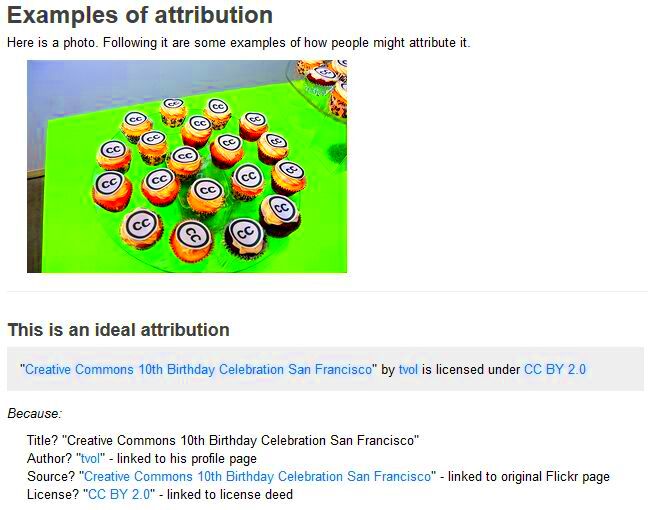Image attribution demonstrates about recognizing the right individuals. It is vital to give recognition to the owner whenever you utilize a different individuals picture. This not only shows respect for the effort put into an artwork but also saves one from copyright problems. Different online platforms lay down particular ways in which one is supposed to attribute images. In this manner, you will avoid pitfalls while working on your developments.
Importance of Proper Attribution

Proper attribution holds great significance for various purposes:
- Respect for Creators: Every image is a product of someone's creativity and effort. Giving credit shows that you value their work.
- Legal Protection: Proper attribution helps you steer clear of copyright infringement. It proves you made an effort to respect copyright laws.
- Building Trust: When you attribute images correctly, you build trust with your audience. They can see you are responsible and ethical in your content creation.
- Enhancing Your Content: Properly attributed images can provide additional context, making your content more engaging and informative.
Also Read This: IMDb Episodes: Exploring the World of “How to Change Your Mind”
Different Types of Image Licenses
There are many different licenses under which images can be found on the internet, and comprehending them is crucial in using those correctly. The important types are as follows:
| License Type | Description | Attribution Required? |
|---|---|---|
| Public Domain | Images that are free to use without any restrictions. | No |
| Creative Commons (CC) | Images that require attribution; some may have restrictions. | Yes |
| Royalty-Free | Images you can use after paying a one-time fee; restrictions vary. | Depends on the provider |
| Rights Managed | Images that require licensing for specific uses and often for a fee. | Yes |
It can assist you in recognizing an appropriate citation and may help you to avoid any legal complications by having knowledge on the license type applicable on the image.
Also Read This: How to Print Sublimation Images on an Epson Printer for High-Quality Results
Steps to Give Image Attribution Correctly
Once you know the steps, correctly crediting images is straightforward. Whether you’re using images on a blog, social media or any other platform, followingthese steps can help ensure you do it right.
- Identify the Creator: Find out who created the image. This could be a photographer, illustrator, or designer. Look for their name or username associated with the image.
- Check the License: Determine the type of license associated with the image. This will guide you on how to attribute it correctly. Always read the fine print!
- Gather the Necessary Information: Collect all required details for attribution. Typically, you need the creator's name, the title of the image, and the source (website or platform).
- Format Your Attribution: Write the attribution in a consistent format. A common format is: "Image Title" by Creator Name is licensed under License Type.
- Place the Attribution: Include the attribution close to the image. If it’s online, you can link back to the source for easy access.
Also Read This: Explore What Sells Best on Shutterstock
Common Mistakes to Avoid in Attribution
Nos actuosissimus rerum auctores errores in tribuione imaginis obtinere possunt. Sequuntur aliquot errores qui maiores sunt:
- Neglecting Attribution: Forgetting to give credit is a major mistake. Always include attribution, even for free images.
- Incorrect Information: Providing inaccurate details about the creator or the image can lead to misunderstandings. Always double-check your facts.
- Ignoring License Requirements: Some images have specific licensing requirements. Ignoring these can lead to legal issues.
- Inadequate Placement: If your attribution is hidden or difficult to find, it defeats the purpose. Make it visible and accessible.
- Using Outdated Links: Ensure that the links you provide for attributions are up to date. Broken links can frustrate users and reduce credibility.
Also Read This: Is Being a YouTuber a Legitimate Job? Exploring the Efforts Behind Content Creation
How to Create an Attribution Statement
Writing a statement of attribution is easy. To formulate it effectively, you may want to follow this simple guide:
- Start with the Title: Begin with the title of the image. If there isn’t one, a brief description will do.
- Add the Creator’s Name: Include the full name or handle of the creator. This gives proper credit.
- Include the License: State the type of license the image falls under. For example, “Creative Commons Attribution 4.0 International License.”
- Provide the Source: Link to the original image or the page where you found it. This not only gives credit but also lets others explore more of the creator’s work.
Here’s an uncomplicated instance:
Sunset Over the Mountains by Jane Doe is licensed under CC BY 2.0. Find it at example.com.
The instructions below would assist you in formulating a precise and efficient attribution statement!
Also Read This: Centering Images in Obsidian
Tools and Resources for Image Attribution
To help you with proper image attribution, there are lots of tools and resources that you can use these days. This ensures that it’s always correct; it’s simple once you have the right tools. Here are some handy tools to consider:
- Creative Commons Search: This tool allows you to find images that are free to use with appropriate licenses. It helps you easily filter images based on license types.
- Pixabay: A great resource for high-quality images that are free to use. Each image includes information on how to credit the creator.
- Unsplash: Offers a vast library of beautiful images. They provide clear guidelines on attribution, making it easy for users.
- Photopea: An online image editing tool that also allows you to add attributions directly onto images before sharing.
- Canva: A popular design tool that includes built-in options for image attribution, making it user-friendly for those creating social media graphics.
The following are some resources that can help you locate quality images as well as provide tips for proper attribution. Remember to look for specific guidelines about image use!
Also Read This: How to Choose the Perfect Adobe Stock Background
Frequently Asked Questions
Image attribution is a tricky thing to navigate and that may leave you with some questions. Below are some statements that can answer your questions
- Do I need to attribute images if they are free to use? Yes, even if images are free, it's best practice to credit the creator. It shows respect and maintains trust.
- What if I can’t find the creator's name? If the creator's name isn't available, you can use "Unknown" or leave it out, but try to provide a link to the source.
- Can I modify an image I’ve attributed? It depends on the license. Some allow modifications, while others do not. Always check the license before making changes.
- Is there a standard format for attribution? While there's no universal standard, a clear format usually includes the image title, creator's name, and the license type.
Conclusion
Law demands that images be identified correctly. However, I think it is an act of honouring the authors who are part and parcel of the vast visual terrain of internet. Understanding what encompasses image attribution, recognizing different types of licenses and evading mistakes commonly made in this field will enable one employ visuals with ease in ones’ projects without any fear at all. Letting one use tools and resources at their disposal for a simpler process can be useful when making proper credits. Content is enhanced with correct attribution as well as creation of an online community that is more considerate and innovative. Therefore, you should definitely credit the original photographer every time when using a photo!

 admin
admin








